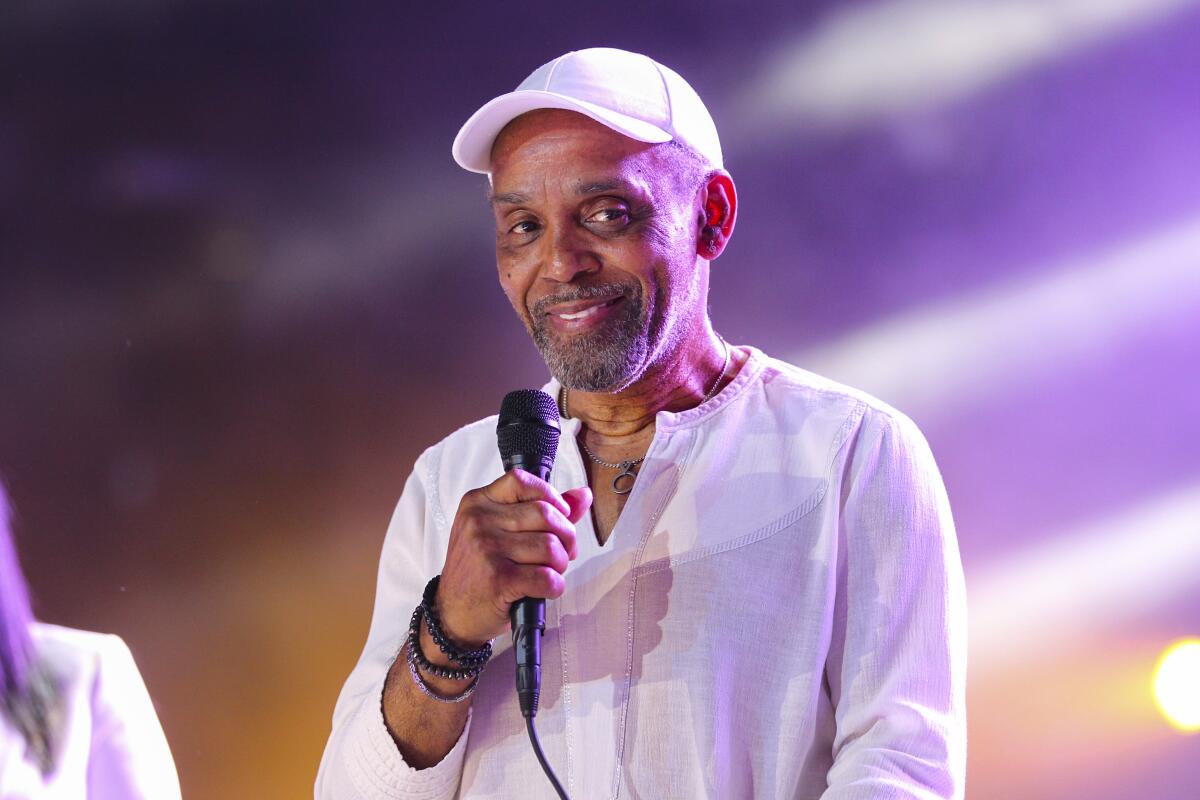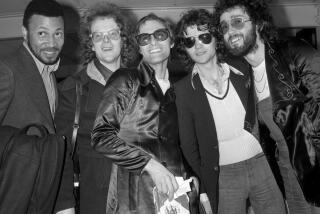Frankie Beverly, soul singer and co-founder of soul-funk band Maze, dies at 77

Soul singer Frankie Beverly, the lead vocalist and co-founder of the soul-funk band Maze, has died. He was 77.
Beverly’s family announced his death Wednesday in a Facebook post but did not include details about his cause of death. Representatives for Beverly and Maze declined to provide further details when reached Wednesday by The Times.
The best thing about R&B; singer Frankie Beverly is that he’s not trying to be Bobby Brown.
“Grieving the loss of a loved one is a deeply personal and emotional experience. During this time, as we are navigating feelings of sorrow, reflection, and remembrance we kindly ask for privacy and understanding, allowing us the space to grieve in our own way,” the family said. “This period for is one of healing, and your respect for our need for solitude is appreciated as we honor the memory of our beloved Howard Stanley Beverly known to the world as Frankie Beverly.”
The family said the singer — who was best known for his high, rich voice and the hits “Joy and Pain” and “Before I Let Go” — “lived his life with pure soul as one would say, and for us, no one did it better. He lived for his music, family and friends.”
The Maze frontman and songwriter was born Howard Stanley Beverly in Philadelphia on Dec. 6, 1946. He got his start in the 1960s with the a capella doo-wop group the Blenders and later formed the soul group the Butlers. Maze, which went by the name Raw Soul when it formed in Philadelphia in 1970, eventually moved to San Francisco to connect with soul icon and Motown great Marvin Gaye, who suggested the band change its name.
Frankie Beverly, lead singer of Maze, has announced he will retire this year after a farewell tour with six stops, including the Kia Forum in Los Angeles.
From 1977 to 1993, Frankie Beverly and Maze turned out R&B hits such as “Golden Time of Day,” “We Are One,” “Happy Feelin’s,” “Southern Girl” and “Before I Let Go,” which was later covered by Mary J. Blige as well as Beyoncé at Coachella in 2018. With the exception of “Joy and Pain,” on which he shared a co-writing credit, Beverly wrote all of the hits that turned Maze into a live-music juggernaut.
Two albums — 1985’s “Can’t Stop the Love” and 1989’s “Silky Soul” — led the Billboard R&B Albums chart, and yielded two number one R&B singles, “Back in Stride” and “Can’t Get Over You.”
That acclaim didn’t translate into enormous album sales — Maze’s studio albums peaked at No. 25 on the Billboard 200, and its singles only occasionally cracked the Hot 100. The group was never Grammy nominated. But Beverly’s consistent touring ensured his catalog would have an inter-generationally cherished place in Black culture.
When the Forum in Inglewood re-opened in 2014, Magic Johnson was thrilled to see Beverly perform there, calling Maze “one of our all-time favorite bands.”
Asked about the Beyoncé cover, Beverly told Billboard that “She’s a great friend of mine, but I didn’t know she was going to do this. When they played it, I was blown away. It’s a blessing. This is one of the high points of my life.”
Beverly and Maze released their last album, “Back to Basics,” in 1993, though the group remained a fixture on the live circuit into the present day. In February, Beverly announced the close of his five-decade career with the I Wanna Thank You Farewell Tour with Maze that kicked off in March at the State Farm Arena. Maze will continue touring with vocalist Tony Lindsay.
Beverly is survived by his son Anthony, who toured with Maze as a drummer, and his ex-wife, entertainment attorney Heather Beverly.
More to Read
The biggest entertainment stories
Get our big stories about Hollywood, film, television, music, arts, culture and more right in your inbox as soon as they publish.
You may occasionally receive promotional content from the Los Angeles Times.













